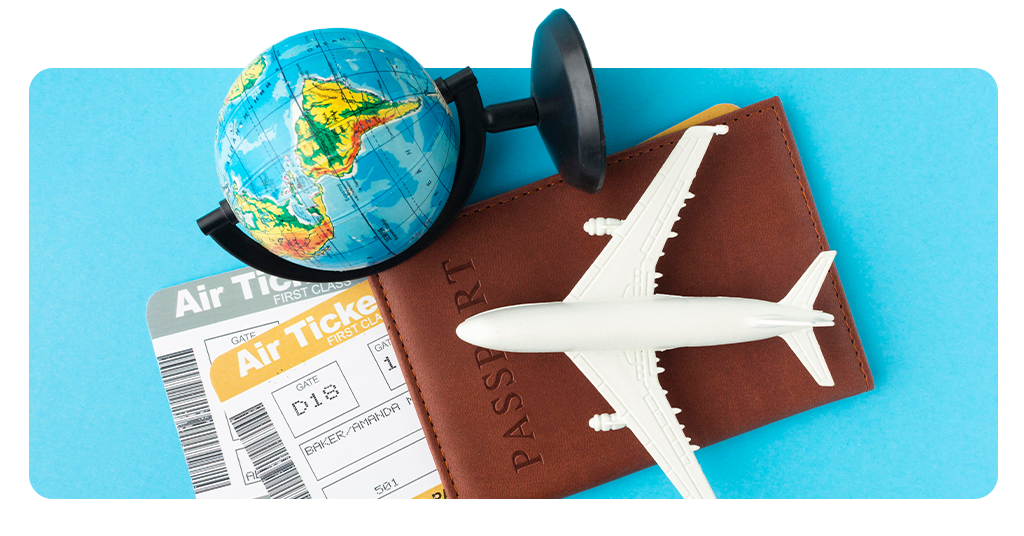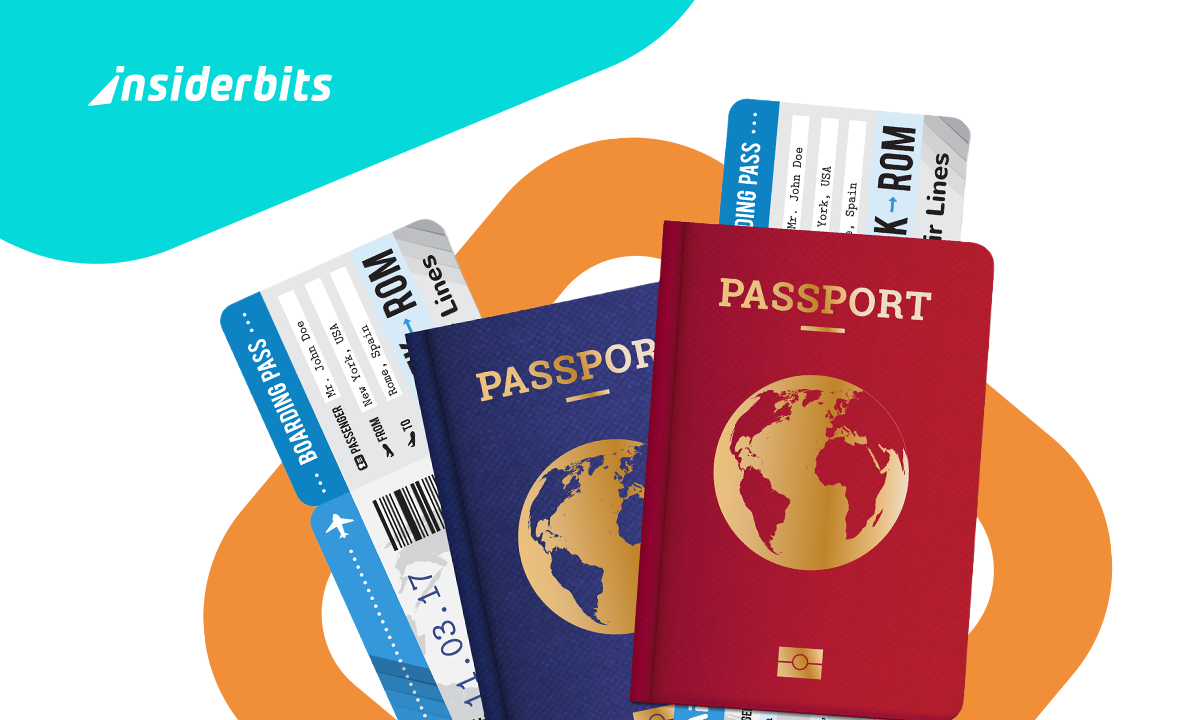Learning how to get a citizenship from another country gives people new possibilities. Rights, security, and opportunities all depend on understanding which legal path is best.
Some options rely on family roots, others on marriage, residency, or investment. Each pathway has different timelines, costs, and benefits that shape personal decisions carefully.
This guide by Insiderbits explains the essentials with practical clarity. Keep reading to discover which approach could connect your future with fresh international opportunities.
Related: Digital Nomad Tax Guide: Simplifying Global Tax Compliance
How to get citizenship from another country legally
Applying for citizenship abroad involves more than paperwork. Countries require evidence of connection, like ancestry, marriage, or long-term residence with verified documentation.
Each government sets their requirements, but many follow shared principles. Applicants must prove commitment to their new country while respecting regulations protecting national interest.
Understanding these rules helps avoid mistakes and wasted time. Careful planning ensures smoother progress, making it realistic for anyone determined to eventually get a citizenship.
Understanding citizenship vs. residency: why it matters
Residency lets you live and sometimes work abroad, but it does not always grant the same protections, benefits and full rights that actual citizenship provides.
Citizenship grants voting rights, access to passports and long-term security. Residency might expire or change, but citizenship typically secures permanent recognition across generations.
Legal frameworks that most countries follow
Many nations follow structured legal frameworks influenced by international treaties. These ensure applications are fair, transparent, and accountable to both governments and applicants.
Frameworks typically include eligibility, background checks, financial requirements, and cultural integration. Following these steps strengthens chances for those wanting to get a citizenship.
Global Citizen Solutions
| Pricing: | Free to access. |
| Available For: | Web. |
Global Citizen Solutions helps people understand practical steps for living abroad. It simplifies rules and highlights reliable programs that support applicants through complex requirements.
The platform shares guides about residency, dual nationality, and investment opportunities. Each resource explains costs, timelines, and criteria so readers can compare possibilities.
It also provides country comparisons, showing destinations that are faster, affordable, or flexible. These comparisons help readers who want to get a citizenship abroad successfully.
How Global Citizen Solutions can help
- Clear guidance on options: the platform explains residency, ancestry, marriage and investment routes, making the process simpler for people seeking citizenship abroad;
- Practical comparisons provided: users can review timelines, fees, and requirements across countries, helping them decide which option aligns best with their personal goals;
- Accessible expert resources: articles and tools present information in friendly language, ensuring applicants understand each stage without confusion.
Expat.com – Citizenship by Country
| Pricing: | Free to access. |
| Available For: | Web. |
Expat.com – Citizenship by Country is a community-driven platform that shares practical guides, real experiences and advice, helping people understand how to get a citizenship.
It organizes information by nation, making it simple to see residency rules, timelines, and requirements, so readers quickly grasp what each country demands from applicants.
The platform also highlights common challenges faced during applications, giving users realistic expectations and valuable tips for handling paperwork, interviews, and official procedures.
How Expat can help
- Country-specific guides: the website organizes information clearly by nation, showing rules, timelines, and requirements for different application processes;
- Real community insights: users share personal stories and tips, offering perspectives that help others understand the process and challenges of applying for citizenship;
- Practical application tips: Expat highlights common challenges, paperwork essentials, and interview expectations, making legal procedures easier to follow.

Dual citizenship: what to know before applying
Dual citizenship offers broader rights but also complex responsibilities. Before deciding to get a citizenship abroad, applicants must understand commitments tied to both nations involved.
Holding two nationalities means navigating multiple sets of laws. This includes taxes, residency obligations, or cultural expectations that vary widely across different countries worldwide.
Preparation helps you avoid surprises. Learning about possible restrictions, benefits, and conflicts ensures the decision becomes informed rather than impulsive.
Possible loss of original citizenship
Some countries do not allow dual nationality. In these cases, applicants risk losing their original citizenship automatically after naturalizing in another state.
Governments design these laws to protect loyalty. Anyone hoping to get a citizenship abroad must verify whether keeping their original nationality remains legally possible.
Taxation and military service obligations
Dual citizenship sometimes creates overlapping tax responsibilities. People may owe income taxes in both countries, depending on treaties, residency status, and specific national rules.
Military service may also apply. Some countries require compulsory duty from citizens regardless of residence, meaning dual nationals might face obligations in both jurisdictions.
Travel freedoms and restrictions
Dual citizenship can expand travel opportunities, offering visa-free access to more countries. This advantage helps individuals move easily for work, study, or personal visits.
However, regulations differ. Some regions restrict entry based on nationality. People planning to get a citizenship must research how dual status affects international mobility rights.
Related: Apps for Digital Nomads: Simplify Work and Travel Life
Easiest countries to get citizenship in 2025
Some countries are making citizenship easier in 2025. Faster approvals and simpler rules mean applicants can reach their goals without unnecessary complications or wasted effort.
Governments introducing flexible policies may reduce residency time or expand ancestry rights. These adjustments reflect a global movement toward encouraging international connections.
Comparing each option helps people choose better. Understanding requirements, timelines, and costs builds confidence, making it more realistic for applicants to get a citizenship abroad.
Countries offering citizenship through ancestry
Ireland, Italy, and Poland are popular ancestry options. Descendants can reconnect with heritage while receiving valuable rights and recognition as legal citizens abroad.
Applicants usually need certificates proving lineage. Although paperwork can be demanding, ancestry routes often feel meaningful and are less expensive than many other options.
Nations with fast-track residency programs
Portugal and Canada offer fast-track residency programs. These shorten the time required before citizenship, making them attractive for applicants looking for quicker approval processes.
Students, entrepreneurs, and workers benefit most. Shorter timelines mean faster access to healthcare, education, and civic rights, providing stability and opportunities for long-term growth.
Affordable investment-based options
Dominica and Saint Lucia offer lower-cost investment programs. Applicants contribute to development projects while gaining travel mobility, financial protection, and legal recognition.
These programs suit those seeking practical opportunities. With smaller contributions and clearer requirements, applicants may strategically invest and eventually get a citizenship.

Investment, marriage, heritage: paths compared
There’s more than one way to gain citizenship. Some people qualify through family history, others through marriage, and some by making investments that benefit communities.
Each path has different rules. Heritage often needs documents, marriage requires proof of partnership, and investments involve money directed toward projects approved by governments.
Knowing these differences makes planning easier. Comparing requirements, timeframes, and costs helps people choose what feels realistic when they want to get a citizenship abroad.
Citizenship by descent: tracing your family roots
Applying through ancestry connects people with family history. It turns cultural pride into something legal, offering recognition while keeping traditions alive for future generations.
Proof of lineage is essential. Birth and marriage certificates usually form the foundation of applications, showing clear ties that meet official ancestry-based eligibility requirements.
Residency and naturalization: building ties through time
Living in a country for several years can eventually lead to citizenship. This approach rewards people who work, study, and contribute consistently over time.
Residency pathways highlight patience and stability. Authorities value integration, so following laws, paying taxes, and showing commitment makes eventual citizenship feel like a reward.
Marriage as a pathway: requirements and pitfalls
Marriage creates another route, but authenticity is crucial. Officials expect proof of genuine relationships, ensuring citizenship decisions are based on trust and real partnership.
Applications receive close scrutiny. Authorities reject fraudulent attempts, meaning marriage must represent an actual life together instead of just a way to get a citizenship.
Citizenship by investment: costs, risks, and rewards
Investments trade financial contributions for legal recognition. Applicants fund projects that improve communities while receiving benefits such as security and international opportunities.
These programs carry high costs. Careful planning ensures investments create real value, balancing money spent with lasting rights, protection, and recognition for the applicant.
Related: CCSE App: How to Obtain Spanish Citizenship
Legal documents and timeframes you’ll need
Applying for citizenship requires more than filling forms. Every country asks for documents proving identity, family history, residence, and financial stability throughout the process.
Timelines also vary widely. Some applicants wait just a year, while others spend nearly a decade preparing everything needed to finally get a citizenship.
Costs add another layer of planning. Fees, translation services, and legal assistance may surprise newcomers, making preparation and budgeting absolutely essential from the beginning.
Essential documents required in most countries
Governments want proof that applicants qualify. Birth certificates, passports, and marriage records are the foundation, showing family ties, identity, and personal history clearly.
Authorities also request residence evidence, such as leases, utility bills, or work contracts. These papers prove ongoing commitment to living within the chosen country.
Additional items include criminal background checks and financial statements. Submitting these correctly is key, since errors often delay or complicate efforts to successfully get a citizenship.
Average waiting times for different citizenship paths
Waiting times depend heavily on the path chosen. Ancestry applications may be processed within a couple years, while naturalization generally requires longer commitments.
Investment-based applications are typically faster, sometimes resolved within months. This route appeals to those prioritizing speed, though financial commitments are considerably higher.
Marriage pathways vary. Some countries offer quick approvals, others extend requirements for several years, ensuring relationships are genuine before permanent rights are finally granted.
How much does it really cost?
Expenses differ across countries, but every path includes fees. Applicants should expect translation costs, government charges, and sometimes professional legal or advisory help.
Investment routes are most expensive, demanding bigger contributions. While fast, applicants must weigh financial risk carefully before committing funds to eventually get a citizenship.
Residency and ancestry options are generally cheaper, but expenses still add up. Careful budgeting ensures progress without unexpected setbacks along the application journey.

Choosing your path to citizenship abroad
If you’re considering citizenship abroad, remember the choices are real. Heritage, residency, marriage, or investment each offers opportunities worth your attention.
Insiderbits showed what matters most, from documents to costs and timelines. These details help you see what’s required to successfully get a citizenship abroad.
Keep exploring Insiderbits for more guidance. You’ll find practical articles designed to support your journey, making every decision about global opportunities clearer and easier.





